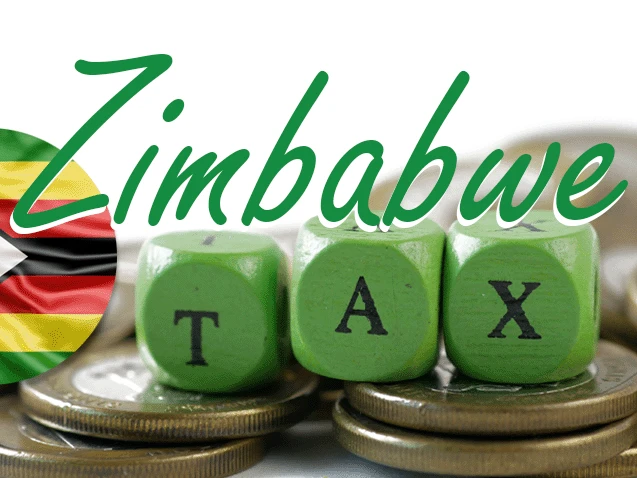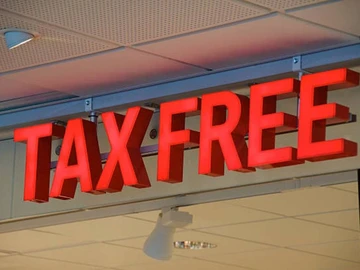Zimbabwe’s property market is undergoing significant transformation due to recent tax reforms announced in the 2024 and 2025 national budgets. These changes are designed to expand the government’s tax base and formalize the real estate sector, but they also pose unique challenges and opportunities for property owners, landlords, tenants, and real estate investors.
Here’s a comprehensive look at these tax reforms and their implications for Zimbabwe’s real estate market.
2024: Introduction of the 1% Wealth Tax
The 2024 budget unveiled a 1% Wealth Tax on residential properties valued at $100,000 or more. This tax aims to address wealth inequality and boost government revenue.
Key Details:
- Exemptions: Principal residences owned by individuals aged 70 and above.
- Application: All other property owners are required to comply.
Implications for Real Estate Stakeholders:
- Accurate Property Valuations: Owners must ensure precise valuations to avoid overpayment or penalties.
- Portfolio Management: Investors are encouraged to reassess their property portfolios to optimize tax efficiency.
- Broader Fiscal Reforms: Many view this tax as a precursor to additional real estate-related fiscal measures.
2025: Rental Income Tax and Mandatory Reporting
The 2025 budget introduced a 25% Rental Income Tax for residential properties converted to commercial use, accompanied by stringent reporting obligations.
Key Requirements:
- Tenant Disclosures: Businesses renting properties must report the property’s location, rent amount, and owner details to ZIMRA (Zimbabwe Revenue Authority).
- Penalties: Non-compliance results in tenants losing the ability to claim rental expenses against taxable income.
Impacts:
For Property Owners:
- Higher Costs: Operating expenses increase due to the new tax.
- Compliance Burden: Owners must maintain accurate records and collaborate closely with tenants to meet ZIMRA’s requirements.
- Risk of Penalties: Failure to comply could lead to significant financial losses, including disallowed tax deductions.
For Tenants (Businesses):
- Loss of Tax Deductions: Non-disclosure risks increased tax liabilities.
- Rising Rent Costs: Landlords may pass the tax burden onto tenants, leading to higher rents.
Market-Wide Implications
- Greater Transparency: Formalizing the rental market builds long-term investor confidence and aligns with global real estate standards.
- Potential Investment Deterrence: Increased taxes may discourage conversions of residential properties into commercial spaces, slowing urban development.
Strategies for Navigating the New Tax Landscape
For Property Owners:
- Accurate Record-Keeping: Track all rental income, expenses, and property valuations meticulously.
- Claim Deductions: Take advantage of allowable deductions, such as property maintenance and insurance, to reduce taxable income.
- Transparent Leases: Clearly outline tax responsibilities in rental agreements to avoid disputes.
- Consult Experts: Work with tax advisors to ensure compliance with ZIMRA and optimize tax strategies.
For Businesses Renting Properties:
- Comply with Reporting Requirements: Disclose rental details to ZIMRA to retain tax deduction privileges.
- Renegotiate Leases: Collaborate with landlords to share the tax burden fairly.
- Budget Adjustments: Plan for potential rent increases and incorporate them into operational budgets.
For Both Parties:
- Adopt Technology: Use property management tools for tracking income, expenses, and compliance.
- Monitor Policy Updates: Stay informed about changes to ZIMRA guidelines to avoid penalties.
- Invest in Training: Equip financial teams with knowledge of the new tax rules.
The Bigger Picture: Zimbabwe’s Evolving Real Estate Market
These tax reforms reflect Zimbabwe’s commitment to formalizing its real estate sector and creating a more transparent marketplace. While the short-term challenges include increased costs and administrative burdens, the long-term benefits could stabilize the market, enhance investor confidence, and promote sustainable growth.
Property owners and businesses must adapt quickly by embracing compliance, leveraging professional advice, and adopting efficient management practices. By doing so, stakeholders can thrive in Zimbabwe’s changing property market and contribute to its ongoing development.
Conclusion
Navigating Zimbabwe’s new tax landscape requires a proactive approach. Whether you’re a property owner, landlord, or tenant, understanding these reforms is key to staying compliant and optimizing your investments. With strategic planning and expert guidance, you can turn these challenges into opportunities and remain competitive in Zimbabwe’s thriving real estate sector.
For more insights and resources, visit Property.co.zw, Zimbabwe’s #1 property marketplace. Stay ahead of the curve with our expert tips and the latest updates on property prices, rental trends, and tax policies in Zimbabwe.
 Continue with Facebook
Continue with Facebook
 Continue with Email
Continue with Email














